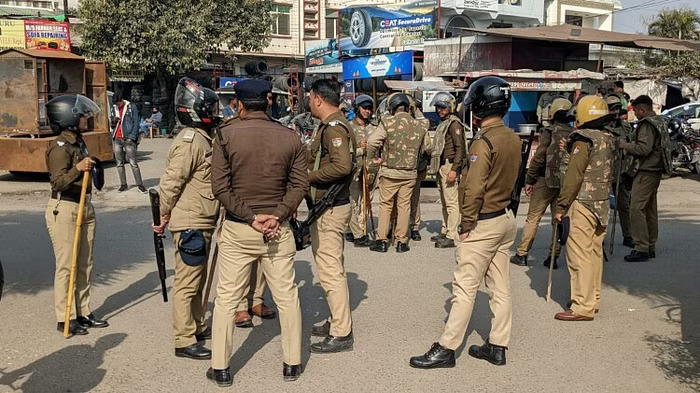
Dehradun: Police forces from Uttarakhand and Himachal Pradesh have successfully dismantled a gang involved in the slaughter of cows and buffalo, following the discovery of 13 carcasses at the Uttarakhand-Himachal border.
On Tuesday, the Dehradun police arrested eight individuals, including a known criminal and a gangster with a history of similar offenses.
Senior Superintendent of Police (SSP) Ajay Singh of Dehradun addressed the media regarding the cow slaughter incident near the border. “We found 13 cow and buffalo carcasses in the Yamuna River, which flows through Vikasnagar, a border area with Himachal Pradesh. This discovery led to significant public outrage and prompted action from animal rights organizations. A high-level meeting was convened with the SP in Sirmaur, Himachal Pradesh, to share information and plan an effective response,” the SSP explained.
Based on the intelligence gathered, a special police team was formed, resulting in the arrest of eight suspects in Dehradun, which included a history-sheeter and a gangster previously involved in similar crimes. Additionally, the Sirmaur police arrested two more suspects.
SSP Ajay Singh emphasized the sensitivity of the incident, stating that the police are continuing their investigation and are aiming to apprehend more individuals linked to the crime.
The collaborative operation between the two states underscores the commitment of both police forces to combat such illegal activities.
In India, laws governing cow slaughter vary significantly from state to state and are influenced by religious, cultural, and economic factors. Some states impose a total ban on cow slaughter, while others have exceptions, making the issue a contentious topic that continues to spark debate regarding law enforcement, economic effects, and human rights.
